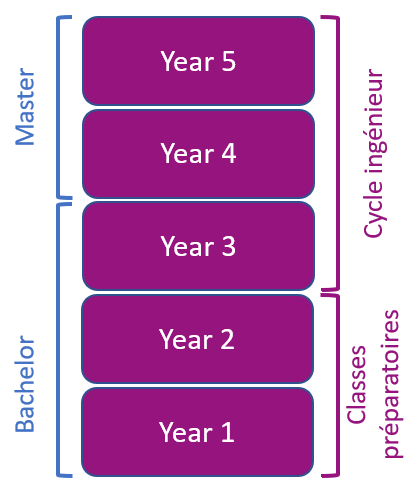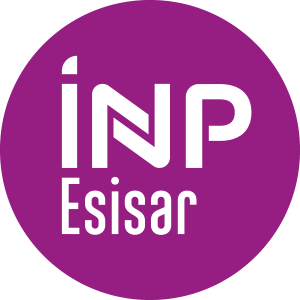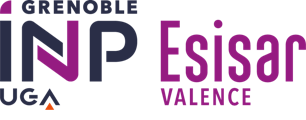Number of hours
- Lectures 12.0
- Projects -
- Tutorials 6.0
- Internship -
- Laboratory works -
- Written tests -
ECTS
ECTS 2.5
Goal(s)
Being able to implement industrial sensors. Being able to estimate the orders of magnitude of the different quantities encountered in the implementation of a sensor. To know the basic physical principles used to transform a physical quantity into an electrical signal and to be able to choose the most suitable sensor in a given situation. Being able to connect a sensor to an electronic circuit while preserving the quality of the signal. Being able to implement the most suitable electronics for passive sensors that minimizes perturbations.
Pierre LEMAITRE AUGER
Content(s)
- Introduction
- Definition of a sensor
- Economical importance of sensors
- Classification of quantities to measures
- Bibliography
- General Common Notions of Sensors
- Response of a sensor
- Definitions
- Static Characteristics
- Sensor's errors
- Calibration
- Dynamic Characteristics
- Signal Conditioning
- Signal transmission
- Noises
- Temperature and flow sensors
- Temperature Scales
- Time Response
- Metallic resistors
- Thermocouples
- Diodes and integrated circuits
- Vibrating quartz
- Pyrometers
- Flux Sensors
- Position sensors and displacement
- Potentiometer
- Inductive Sensors
- Capacitive Sensors
- Optical Encoders
- Optical Triangulation sensors
- Optical Sensors
- Time of Flight Sensors
- Magnetic Field based Displacements Sensors
- Inertial Sensors: accelerometer and gyroscope
- Various sensors
- Hall Effect Sensors
- Strain Gauges
- Pressure and Vacuum Sensors
- Humidity Sensors
- Flow Sensors
Basic knowledge of analog electronics and semiconductors.
Knowledge of electrostatics, magnetostatics, electromagnetism, waves and optics.
- Exams:
- E1 (Mid-term Exam): 30 min without documentation and without a calculator
- E2 (Final Exam): 1.5 hour with documentation and calculator
- DM (Homework): graded activity
- TP (Practical Work): graded activity
- ER (Re-sit Exam): new grade replaces all previous ones
The course exists in the following branches:
- Curriculum - EIS - Semester 7
Course ID : 4AMEE470
Course language(s): 
The course is attached to the following structures:
You can find this course among all other courses.
- Asch, G. et al. "Les capteurs en instrumentation industrielle", 5th edition, Dunod, 1998.
- Fraden, J., "Handbook of Modern Sensors: Physics, Designs, and Applications", 4th ed.: Springer, 2010.
What is a grande école ?
French engineering curriculum





